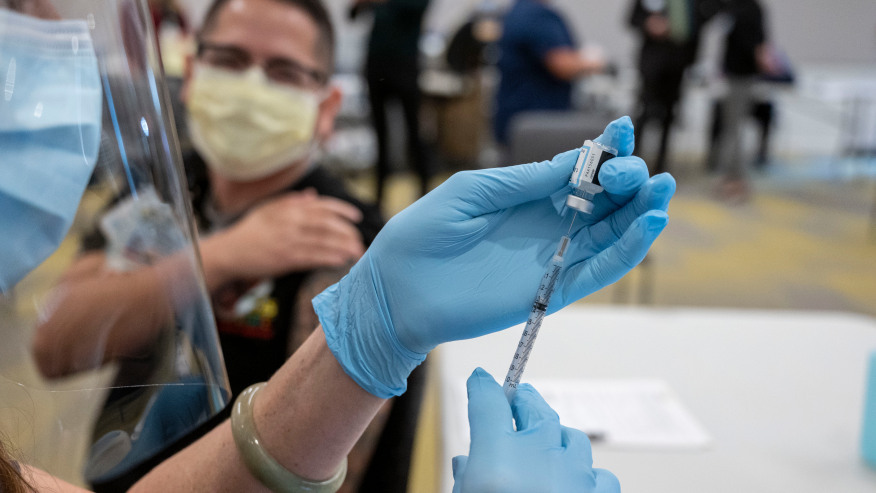
KANSAS – Kansas is being told to expect smaller shipments of the Pfizer vaccine.
Other states getting the same message are Connecticut, Georgia, Illinois, Montana, Nebraska, Nevada, New Hampshire and Indiana.
Missouri’s health director, Dr. Randall Williams, said his state will get 25% to 30% less of the vaccine next week than anticipated. A statement from the Iowa Department of Public Health said its allocation will be “reduced by as much as 30%, however we are working to gain confirmation and additional details from our federal partners.”
Pfizer issued a statement late Thursday saying the company isn’t having issues in production or distribution.
Pfizer had reported some production issues with the vaccine, U.S. Secretary of Health and Human Services Alex Azar said on Wednesday, Reuters reported.
“Pfizer is not having any production issues with our COVID-19 vaccine, and no shipments containing the vaccine are on hold or delayed. This week, we successfully shipped all 2.9 million doses that we were asked to ship by the U.S. Government to the locations specified by them. We have millions more doses sitting in our warehouse but, as of now, we have not received any shipment instructions for additional doses,” the company said in a statement.
In recent days, governors and health leaders in more than a dozen states have said the federal government has told them that next week’s shipment of the Pfizer-BioNTech vaccine will be less than originally projected.
Little explanation was offered, leaving many state officials perplexed.
“This is disruptive and frustrating,” Washington Gov. Jay Inslee, a Democrat, wrote on Twitter Thursday after learning from the Centers for Disease Control and Prevention that the state’s allocation would be cut by 40%. “We need accurate, predictable numbers to plan and ensure on-the-ground success.”
California, where an increase in cases is straining intensive care units to the breaking point, will receive 160,000 fewer vaccine doses than state officials had anticipated next week — a roughly 40% reduction.
California hospitals began vaccinations this week from the first Pfizer shipment of 327,000 doses and had expected even more to arrive next week. Instead, officials have been told to expect about 233,000 doses, said Erin Mellon, a spokeswoman for Gov. Gavin Newsom.
Pfizer said they continue to work with the government to distribute the vaccines.
“We have continuously shared with Operation Warp Speed (OWS) and the U.S. Department of Health and Human Services through weekly meetings every aspect of our production and distribution capabilities. They have visited our facilities, walked the production lines and been updated on our production planning as information has become available,” the company said.
The Department of Health and Human Services and Department of Defense have not commented.
Two senior Trump administration officials who spoke on condition of anonymity to the Associated Press to discuss internal planning said states will receive their full allocations, but misunderstandings about vaccine supply and changes to the delivery schedule may be creating confusion.
One official said the initial numbers of available doses that were provided to states were projections based on information from the manufacturers, not fixed allocations. Some state officials may have misunderstood that, the official said.
Pfizer said it remains confident it can deliver up to 50 million doses globally this year and up to 1.3 billion doses in 2021.

